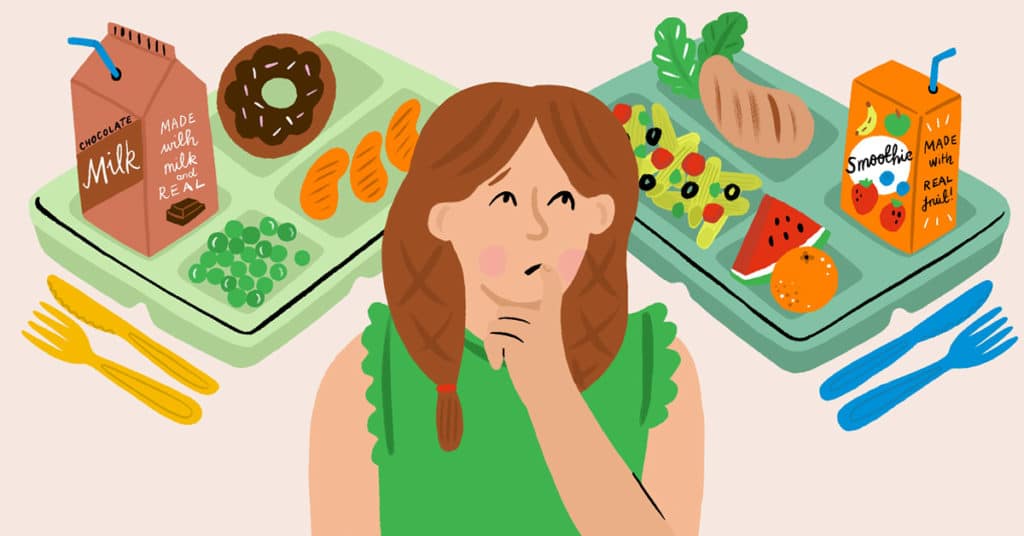
By Brian Wu, MD, PhD
Clinically reviewed by Dr. Raafia Muhammad, MD, MPH
If your child with ADHD is heading back to school this month, one thing that you might be thinking about as a parent is the school lunch. Do you go with what the school is serving, or do you opt to make your child’s lunches at home? Here are some tips to consider as you navigate this issue.
Assessing Your School’s Meal Program
A good place to start is an examination of your school’s meal program because not all schools are going to give you the same option.
Naturopathic doctor Amy Nelson, writing on the People’s Rx site, notes that: “To be fair, school lunch programs vary in quality, from those that are nutrient-dense, health conscious and vegetable-centric to those that are fast food oriented and comparable to a microwave dinner at best.” Dr. Nelson specifically mentions that parents should avoid cafeteria foods that include food additives, refined sugar, and sodium benzoate, found in many food dyes.
The ADHD-focused website Play Attention recommends that when you look at school lunches, you should look for items like fresh fruits and vegetables and healthy proteins. Most schools publish their menus on their websites each month. But you can also make a lunch date at your child’s school so you can see how the program works in person, according to the non-profit Pew Charitable Trusts. Take the opportunity on this lunch date to help your child make healthy choices in the cafeteria and to reach out to the cafeteria and other school staff with feedback.
But what if the school lunch program just doesn’t measure up?
Packing It In
After examining the school menus, you might come to the conclusion that the local lunch program is simply not able to meet your child’s unique nutritional needs. In this case, it is good to be prepared with healthy, easy-to-make and kid-friendly lunches.
ADDitude Magazine recommends that parents wanting attractive but healthy options for their child’s lunch get creative with what they pack. They suggest variations on a theme of the typical peanut butter and jelly or ham and cheese sandwich. These variations can include a sandwich with peanut butter and jelly and sliced apples, or simply sliced fruit with a peanut butter dip. Instead of meat and cheese sandwiches, try ham or turkey chunks in potato or pasta salad or cheese sticks with pita chips.
Play Attention offers some helpful overall advice to help ensure homemade lunches are successful. It advocates asking your child’s teacher to keep an eye on them at lunchtime to make sure they are eating. It also advocates involving your child in the preparation process. Let your child choose their own foods (within the dietary guidelines) and try to choose finger foods or other foods easily eaten.
So, in summary: It is useful for you as a parent to take a close look at your school’s meal program. While some schools truly strive to serve healthy, nutritious foods that benefit all students — whether or not they have ADHD — not all programs live up to this standard. If you feel that your school’s lunches fall short, packing in a variety of nutrient-dense but fun foods will help you to manage your student’s ADHD even when you cannot be there in person.
Sources:







